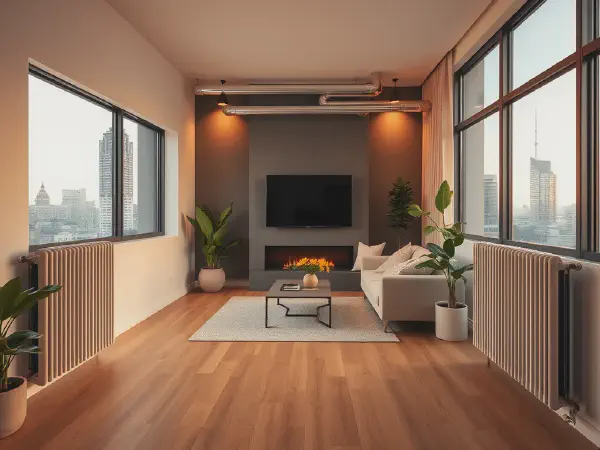Comprehensive Guide to Hydronic Heating in Melbourne

Hydronic Heating Melbourne: A Comprehensive Guide
Hydronic Heating Melbourne is an innovative and efficient heating solution that has gained popularity among homeowners and businesses alike. This system utilizes water as a medium to transport heat throughout a space, providing consistent warmth during the colder months. Unlike traditional heating methods, hydronic systems are designed to offer both comfort and energy efficiency, making them an excellent choice for Melbourne's climate.
The appeal of Hydronic Heating Melbourne stems from its ability to maintain a warm environment without the dryness common in conventional heating systems. Hydronic heating is installed under the floor, ensuring that heat rises and warms the entire room evenly. Homeowners cherish this technology not just for its performance but also for the aesthetic freedom it offers, as it eliminates bulky radiators and other visible heating units typically found in traditional setups.
For reliable warmth during winter, consider the expertise of dp heating that prioritizes energy efficiency and comfort.
In Melbourne, where winters can be chilly and damp, hydronic heating stands out as a reliable solution to combat the cold. The system is versatile and can heat various spaces, from residential homes to commercial establishments. With the growing emphasis on energy efficiency and reducing carbon footprints, more Manchester residents are turning to hydronic heating for its sustainable benefits and long-term cost savings. By investing in Hydronic Heating Melbourne, homeowners are not only enhancing their comfort but also contributing to a greener environment.
As the demand for home automation and smart technologies increases, integrating hydronic heating with smart home features has become a popular trend. Homeowners can now control their heating systems remotely, set schedules, and adjust temperatures from their smartphones, allowing for a greater degree of comfort and convenience. This advancement showcases how Hydronic Heating Melbourne continues to evolve, adapting to modern lifestyles while offering unparalleled efficiency.
In summary, Hydronic Heating Melbourne is more than just a heating solution; it's an investment in comfort, efficiency, and style. With its numerous benefits, innovative features, and growing popularity, it’s no wonder why more people are considering this heating method for their homes and businesses.
Benefits of Hydronic Heating
Hydronic heating is renowned for its energy efficiency. By utilizing water to conduct heat, these systems consume less energy compared to traditional methods such as gas or electric systems. This efficiency translates to lower running costs and environmental benefits, making it an appealing choice for eco-conscious homeowners in Melbourne.
Enhance your home’s comfort with the innovative solutions offered by dp air conditioning designed for optimal airflow and cooling.
One of the primary benefits of hydronic heating is the exceptional comfort it provides. Unlike forced air systems that can create drafts and uneven temperatures, hydronic systems deliver consistent warmth throughout the space. This even distribution of heat ensures a cozy environment during Melbourne's harsh winter months, enhancing livability.
Additionally, hydronic heating boasts significant health benefits. The absence of dust and pollutants that accompany air-based heating methods helps improve indoor air quality. This reduction in allergens makes hydronic systems an excellent option for families with allergies or respiratory issues, promoting a healthier home environment.
When compared to traditional heating methods, hydronic heating outshines in various aspects. While conventional systems may require frequent maintenance and have higher operational costs, hydronic systems are designed for durability and longevity. This reliability makes hydronic heating a more appealing long-term investment.
Cost savings are a significant advantage of hydronic heating. Although the initial installation costs may be higher than traditional systems, the reduced energy consumption leads to substantial savings over time. This makes hydronic heating an economical choice for homeowners looking to lower their utility bills.
Installation Process of Hydronic Heating
The installation process of hydronic heating involves several key steps. Initially, a thorough assessment of the home is conducted to determine the best heating strategy and design. This includes evaluating the building's structure, insulation levels, and existing heating systems to create a tailored hydronic design that meets the homeowner's needs.
Choosing the right system for your home is crucial in the installation process. Factors to consider include the size of the space to be heated, insulation standards, and personal preferences for heating comfort. Various types of hydronic systems are available, including radiant floor heating, baseboard systems, and towel warmers, ensuring homeowners can select the ideal option for their specific needs.
Best practices for installation include hiring experienced professionals who understand local building codes and installation techniques. Properly designed and installed systems are essential for optimal performance and energy efficiency. Ensuring that all components, such as pipes, boilers, and controls, are correctly installed will significantly impact the system's effectiveness.
Common challenges during installation may include accessibility issues, especially in existing structures, and the need for retrofitting. Overcoming these challenges requires expertise and careful planning to ensure the successful implementation of a hydronic heating system without compromising the integrity of the home.
Hiring certified professionals in Melbourne is essential for a successful installation process. Certified contractors possess the necessary skills, knowledge, and experience to ensure that the hydronic heating system is installed correctly and efficiently, minimizing the risk of problems in the future.
Maintenance of Hydronic Heating Systems
Routine maintenance tips for hydronic systems include regular checks of the boiler, ensuring the water levels are optimal, and bleeding the radiators to release trapped air. These simple maintenance tasks can prolong the system's lifespan and maintain its performance, ensuring consistent heat for your space.
Signs that your hydronic heating needs repair can include strange noises, inconsistent temperatures, or leaking water. Timely action to address these issues can prevent further damage and costly repairs, making it essential to be aware of any irregularities in the system's operation.
Regular inspections are crucial for hydronic heating systems to ensure they operate at peak efficiency. Professional technicians can identify potential issues early on, allowing for timely repairs and prolonged system lifespan. Regular servicing helps maintain the efficiency of the system, ultimately saving money on energy bills.
Homeowners can perform DIY maintenance tasks, such as checking the pressure gauge, ensuring good airflow around the system, and keeping the boiler area free of debris. These simple tasks contribute to optimal performance and can help catch minor issues before they escalate.
Seasonal care for optimal performance involves preparing the system for winter by ensuring all components function correctly before the heating season begins. Homeowners should have their systems serviced in the fall to address any issues and ensure a smooth transition into the colder months.
Types of Hydronic Heating Systems
Radiant floor heating systems are among the most popular types of hydronic systems. By installing heated pipes beneath the floor, radiant heating provides consistent warmth where it is most needed—at the feet. This method is highly efficient and creates a cozy environment during cold seasons.
Baseboard hydronic heaters are another common option. These units are installed along walls and use hot water to produce heat that gradually rises into the room. They are ideal for homes with limited space and can be easily incorporated into existing heating systems.
Hydronic towel warmers are a luxurious addition to bathrooms. These systems not only keep towels warm and dry but also contribute to space heating, making them a practical choice for comfort and convenience in Melbourne's cooler months.
Combination heating systems integrate hydronic heating with other heating methods, such as radiant heat and forced air. This versatility allows homeowners to personalize their heating solutions, ensuring optimal efficiency and comfort tailored to their needs.
Choosing the right type of hydronic heating system for your home depends on several factors, including space, layout, and budget. Consulting with a professional can help determine which system best meets your heating requirements and lifestyle preferences.
Energy Efficiency and Hydronic Heating
Hydronic heating significantly reduces energy consumption by utilizing water for efficient heat transfer. Compared to traditional heating systems, hydronic systems can maintain comfortable temperatures with lower energy input, promoting sustainability and cost-effectiveness.
Understanding energy ratings is essential when selecting hydronic heating systems. Systems with higher energy efficiency ratings consume less power and provide better heating performance, ultimately leading to lower energy bills and reduced environmental impact.
To achieve optimal energy efficiency, homeowners should familiarize themselves with the best settings for their systems. This includes programming thermostats, utilizing zone heating, and maintaining appropriate water temperatures to minimize energy waste.
Incorporating renewable energy sources, such as solar panels, can further enhance the energy efficiency of hydronic heating systems. By harnessing sustainable energy, homeowners can reduce their carbon footprint and reliance on fossil fuels, leading to substantial long-term savings.
Financing options for energy-efficient systems can also ease the upfront costs associated with upgrading to hydronic heating. Many programs and incentives are available to support homeowners in making the transition to energy-efficient heating solutions, making hydronic systems more accessible than ever.
